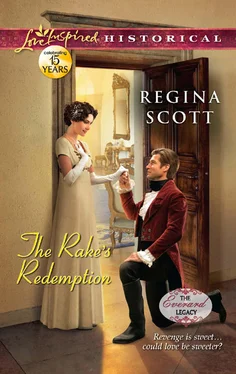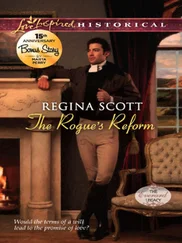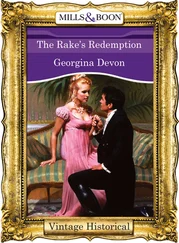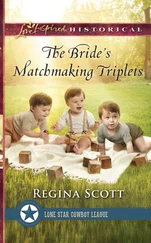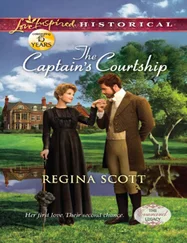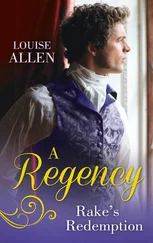But what she needed to know was his character and background. Surely they would give her some notion as to his business with her father. How wonderful that she’d been given this opportunity!
“How do you know my father?” she asked just as he said, “Is your father in attendance?”
Imogene laughed. He smiled, a warm, open smile that invited her closer, promised it was meant for her alone. Too bad it disappeared as quickly as it had come.
“Forgive me,” he said. “Ladies first.”
“My father wasn’t able to join us,” she said, answering his question. “I didn’t know you were acquainted.”
She waited, hoping for similar honesty. He turned slightly toward her, lips poised to respond, and she sighted Mrs. Mayweather headed in their direction, eyes narrowed. “Oh, dear.”
He must have seen the danger, too, for he expertly steered Imogene away. Once they had put a row of columns between them and their hostess, he said, “Your father and my uncle were good friends.”
Friends? Had she ever been introduced to an Everard old enough to be his uncle? Her confusion must have been written on her face, for he clarified. “Arthur, Lord Everard. You must have met him.”
Imogene shook her head. “I’m sorry. I don’t recall. What does he look like?”
“Tall, lean, fair-haired—a great deal like me, actually.”
Imogene beamed at him. “Forgive me. A gentleman that handsome would be difficult to forget.”
He chuckled, then stiffened and guided her behind the dowager’s circle. The older ladies batted their eyes and waved their fans as he passed, and he nodded and smiled encouragement to them.
On the opposite side of the circle, his cousin, Lady Everard, looked far less encouraging, her pretty face scrunched up in confusion. She had thick golden hair, worn up high and cascading down her back, and dark brown eyes that must run in the family, for they were very like his. Every girl in the room would be wondering how to copy that gown—clear muslin over an underskirt spotted in gold so that it sparkled as she moved.
“I fear our promenade will end all too soon,” he murmured to Imogene. “Do me the honor of answering two more questions.”
“Anything,” she said, then chided herself on her eagerness.
“First, do you remember what your father was doing the night of March third?”
What a singularly odd thing to ask! Whatever issue he had with her father must have something to do with that day. Imogene thought back. Had they been in London yet? Her father had been intent on getting them all there from their country estate. Business, he’d said, that could only be conducted in London.
Vaughn Everard was leading her toward the main entrance to the ballroom now. Framed in the doorway, her mother glanced about, obviously in search of her. Mrs. Mayweather stood beside her, foot tapping against the fine wood floor.
“I don’t remember,” Imogene said in the rush. “What’s the second question?”
“May I call on you tomorrow?”
She was so surprised she actually stopped, pulling him up short. The movement was enough for her mother to spy her and start in her direction.
“Cousin Vaughn,” Samantha Everard said behind them, her voice surprisingly hesitant for her usual confidence in the social scene. “You promised me the next dance. Have you forgotten?”
His body turned dutifully as he released Imogene, but his gaze remained on hers, waiting. She could almost see the hope.
“There you are, Imogene,” her mother said, coming up to her and taking her arm. “It’s been a long evening, dear, and I’d like to retire.”
Samantha Everard’s fingers were reaching for her cousin’s wrists even as Lady Widmore’s wrapped around her daughter’s. Before Imogene could answer him, they had parted, and she knew they would not be given the opportunity to talk again that night. She glanced at him twice as she walked with her mother to the door, but if he returned the look, she didn’t see it. Imogene felt a sigh of pure frustration escape her.
Her mother waited until they were seated in the carriage on the way home before requesting an explanation. How could Imogene refuse? Elisa Mayweather might be burdened with an overbearing mama, but Imogene knew how fortunate she was in her own mother. She hoped she’d look so lovely when she reached her mother’s age. Lady Lavinia Devary, Marchioness of Widmore, had hair that was a distinguished shade of silver, but her face was as unlined as Imogene’s, and she carried herself with an elegance her daughter envied. Even now, confronted with Imogene’s possible indiscretion, she was more concerned than censorious.
“Darling,” she said, reaching across the coach to take both of Imogene’s hands. “Why the interest in Mr. Everard? Surely you know his family is considered scandalous.”
Imogene frowned. “Are they? Why?”
Her mother’s voice was stern though her look remained concerned. “The former Lord Everard was not a gentleman, despite his title. I refused to allow him entrance to our home even though your father considered him a friend.”
Her mother was usually determined to see the best in everyone. Lord Everard must have done something terrible for her to take him in such dislike. But at least Mr. Everard had been right in calling her father and his uncle friends. “And do you find Mr. Everard so scandalous, as well? Is that why Father refuses to see him?”
Her mother squeezed her hands. “I have heard he has dueled, but I had nothing to do with your father’s decision. Still, I trust his judgment.”
“I wish I did. Something’s wrong, Mother. I can feel it.”
Her blue eyes were sad. “You are a loving daughter, Imogene, but you needn’t worry for him.”
Imogene leaned forward. “How can I not worry? He doesn’t talk to me anymore. He’s seldom home. It’s almost as bad as when Charles died.”
Her mother paled, as if even hearing the name of her lost son hurt. Imogene hurt with her.
“Your father is a very busy man,” she said, releasing Imogene’s hands, “called to serve the king in many areas. With Napoleon threatening to invade at any time, do you think something as small as a misguided poet could concern him?”
Imogene sighed. “Perhaps not, but he continues to refuse Mr. Everard entrance, even when he’s perfectly capable of receiving him. I’d like to know why.”
Her mother turned her gaze to the window. “There are a great many questions about this life that remain unanswered, Imogene. You would be wise to grow accustomed to the fact.”
She knew her mother was right. She’d never understood why her younger brother had died, why her mother had lost all the other older sisters Imogene might have had. She called Imogene her little gift from the Lord. Didn’t the fact that Imogene alone had survived and thrived mean God had some purpose for her life? Something more she was meant to do than simply dance through each Season with no thought but to her own pleasure?
I know You do, Lord! I know I was meant to save my family. Surely You have a greater plan than for all to be lost when Father dies someday. Show me the man You mean to help me gain approval to carry on the title of Marquess of Widmore!
* * *
She tried to ask her father about the problem as soon as they returned home, but Jenkins, their head footman, reported that he was still away. She hadn’t been willing to broach the subject with the marquess earlier without knowing a name. In truth, many people rapped at the door of the Marquess of Widmore: widows seeking redress from the War Office, or the Admiralty where he advised on French tactics, émigrés related to their French ancestors to request aid in rebuilding their lives in England, solicitors and land stewards needing decisions on the family investments.
Читать дальше
